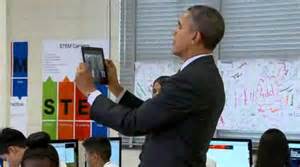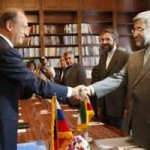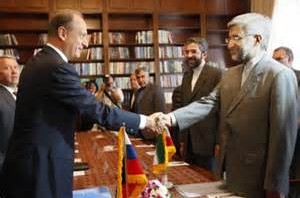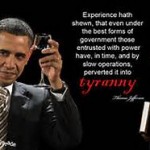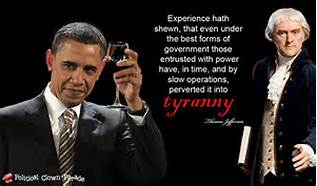While the insurgency at the Southern Border continues, it is important to know even more outside the scope of the obvious aired on TV.
We have at least two retired Generals that have vocally said in the last few weeks that this incursion is a national security threat, their names are General Hayden and General Kelly. So what is really going on with a solution?
Real Photo
90,000 migrants could cross border
Homeland Security Secretary Jeh Johnson said Thursday that as many as 90,000 unaccompanied child migrants could cross the southwest border before the end of this fiscal year in September.
That will place a huge strain on immigration agencies which will badly need new money to get through the summer, Johnson says. The 90,000 number—the highest yet given by the administration—is spelled out in written Senate testimony by Johnson as well as Health and Human Services Sylvia Burwell, who must also deal with the border crisis.
“We are preparing for a scenario in which the number of unaccompanied children apprehended at the border could reach up to 90,000 by the end of fiscal 2014,” Johnson’s testimony reads, and he bluntly warns that without an infusion of new funds, the U.S. Immigration and Customs Enforcement (ICE) will run out of money in August.
Johnson appeared Thursday afternoon before the Senate Appropriations Committee, which is considering President Barack Obama’s request this week for $3.7 billion in emergency funds, chiefly for Homeland Security and HHS.
Of the 90,000, it is estimated that about 20,000 will be from Mexico and can be quickly returned. But about 70,000 would have come from Central American countries like Honduras, El Salvador and Guatemala, and processing these cases requires much more time under current law and has provoked debate now in Congress.
In fiscal 2013, Johnson said 24,000 unaccompanied children were apprehended by border officers in his department. That number had already doubled to 57,000 by the end of June, he said, and “it continues to climb.”
But what about the Department of Justice?
Here is the DoJ’s new priority. By: lsmoynih
Along the southern border of the United States, migrants make the dangerous journey from Central America and Mexico to our homeland on a daily, consistent basis. Throughout the process of this journey, individuals, children, and entire families are faced with varying degrees of violence, criminal activity, abusive treatment, and extortive practices. Once on United States soil, detained migrants are faced with detention and become active cases within the immigration courts of the United States. As such, these detained migrants and their human rights are the concern of the U.S. Department of Justice. Concerns of the Department of Justice range from humane treatment and proper care of migrants during detainment to the proficient completion of migrant court cases.
This week, Deputy Attorney General James Cole announced, “… that the Justice Department will implement a series of steps to help address the influx of migrants crossing the southern border of the United States.” This announcement was accompanied by a Fact Sheet titled, “Department of Justice Actions to Address the Influx of Migrants Crossing the Southwest Border in the United States.” The steps included in the announcement contain the following points of focus:
- “Refocusing immigration court resources to adjudicate the cases of recent immigrants”
- “Providing support and training to help address violence in Central America”
- “Redoubling efforts to work with other federal agencies and the Mexican government to investigate and prosecute those who smuggle migrants to the United States”
To address the first point, the Department of Justice’s Executive Office for Immigration Review (EOIR) has been refocused, “… to prioritize cases involving migrants who have recently crossed the southwest border and whom DHS has placed into removal proceedings…” The purpose of this adjustment in case prioritization is to ensure that recent cases are processed proficiently, especially those cases concerning unaccompanied minors and families who crossed the border with children. Proficient case completion safeguards those migrants seeking asylum as well as returning migrants whose case proceedings deem removal as fitting. In order to achieve this level of timely case completion, the EOIR plans to reassign immigration judges, implement technology-supported proceedings by means of video teleconference, and allow for the appointment of temporary immigration judges.
In order to achieve the second point of focus, the Department of Justice is seeking a means to fund the delegation of, “… legal and law enforcement advisors at U.S. embassies…” in designated Central American Countries. In addition, to provide foreign governments with the necessary support and training to combat criminal violence, the Department of Justice, “…is seeking new funding…to assist Central American countries in combatting [sic] transnational crime and the threat posed by criminal gangs.” The purpose of supporting Central American countries in this manner is to provide potential migrants with safer home countries, and thus decreasing the number of migrants who seek protection in the U.S. from crime violence in their home of origin.
For the purposes of prosecuting migrant smugglers, the Department has announced plans to increase its attempts at “…identify[ing] and apprehend[ing] smugglers who are aiding unaccompanied children in crossing the U.S. border.” In tandem with these increased attempts, the importance of strategizing a means to “…disrupt and dismantle…” smuggling networks is addressed as a key area of focus to achieve the final focal point of the announcement.
In conclusion, the Department announcement discloses two initial steps being made this week by key officials. On July 9, 2010, Deputy Attorney General Cole made a visit to the U.S. Customs and Border Protection’s McAllen Station and processing facility in order to view the pressing concerns regarding the influx of migrants at the border. Apart from this, EOIR Director Juan P. Osuna plans on testifying before the Senate Homeland Security and Governmental Affairs Committee to emphasize the Department of Justice’s strategies towards addressing the influx of migrants onto U.S. soil.


